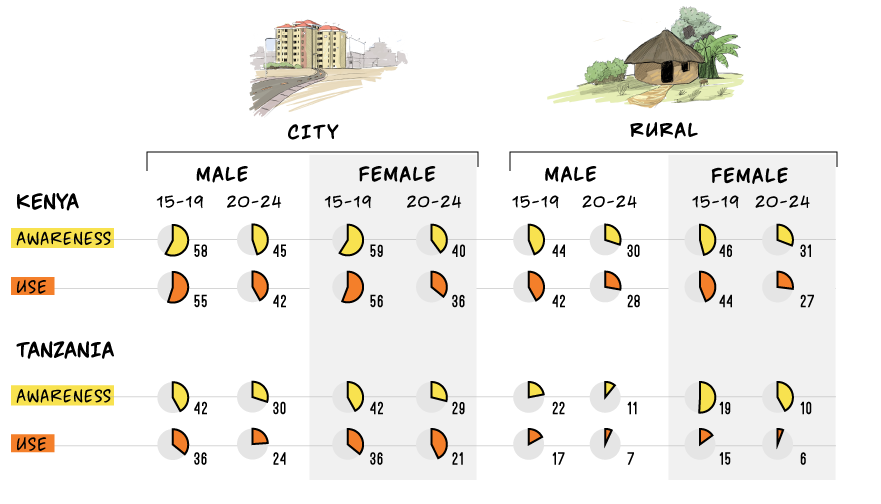Reach & Shujaaz Effect
The Shujaaz brand is known to nearly half of Kenyans aged 15-24, which means approximately 4.2 million young men and women in both urban and rural areas. It even reaches a third of older rural females – the demographic segment least engaged in activities outside the household and thus most difficult to penetrate.
Shujaaz content builds upon detailed GroundTruth research and is created by young people themselves to be highly relevant, compelling and entertaining. The Shujaaz brand is “sticky,” as is reflected in our Brand Love measures.
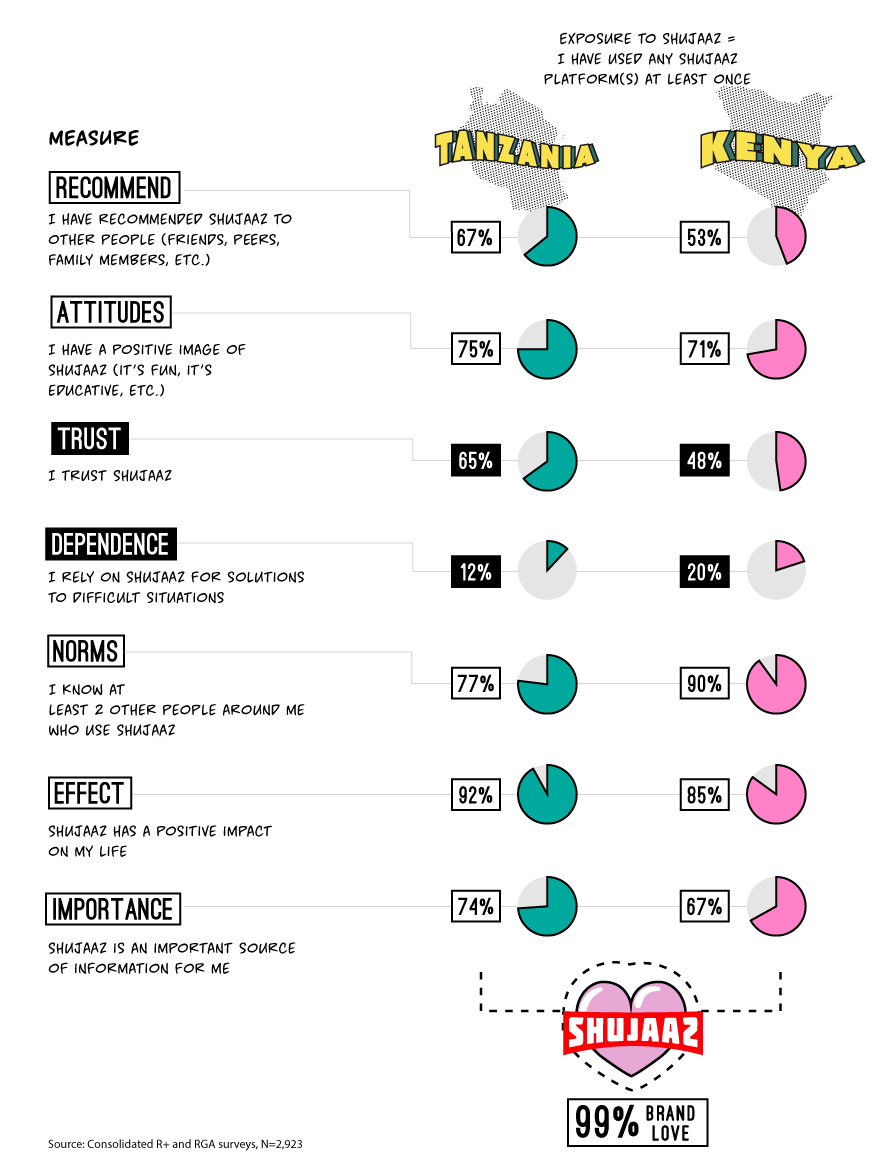
Shujaaz Theory of Change
Brand Love has the potential to translate into real-life behavioural effects according to our evidence-supported Theory of Change, which posits an overall audience journey from exposure to Shujaaz media to developing trust in the media to engaging in large-scale, taboo-confounding conversations to experiencing shifts in perceived norms to ultimately, changing behaviour.
A four-year panel study conducted by researchers from the University of North Carolina at Chapel Hill showed that for Kenyan girls aged 15 to 19, exposure to Shujaaz comics and our Jongo Love radio narrative was strongly associated with delayed sexual debut, delayed marriage and delayed conception of a child.
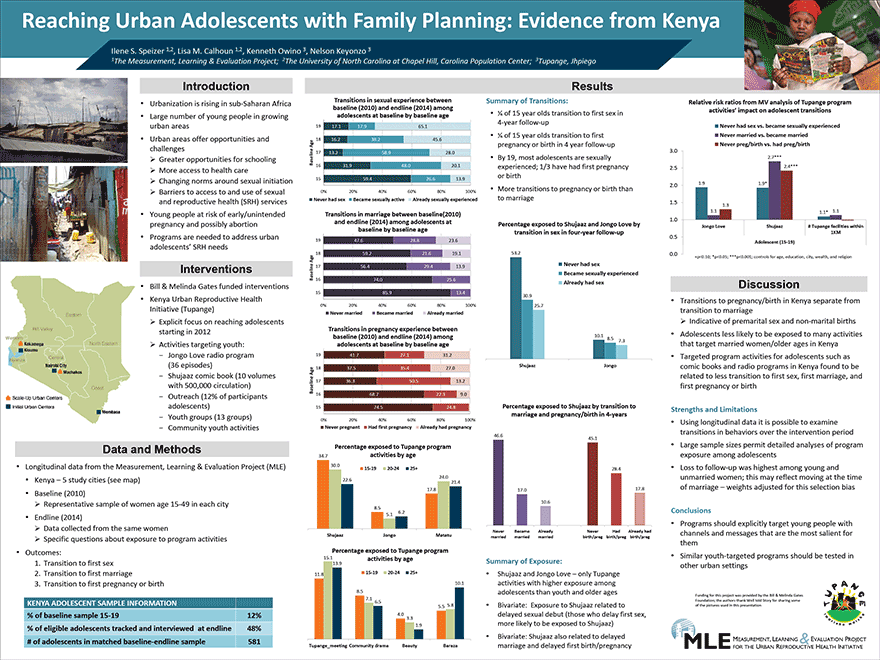
Between 2015 and early 2017, a longitudinal panel study, designed by Dr. Christopher Beaudoin from Texas A&M and Boston Universities and conducted by Research Africa Plus, followed up with over 700 Kenyan youth after one year and found causal evidence that Shujaaz led to statistically significant positive effects across several key development areas both explicitly and implicitly targeted through Shujaaz storylines. Audience members who claim to love Shujaaz (89% of users) are X times more likely than nonusers to do the following:
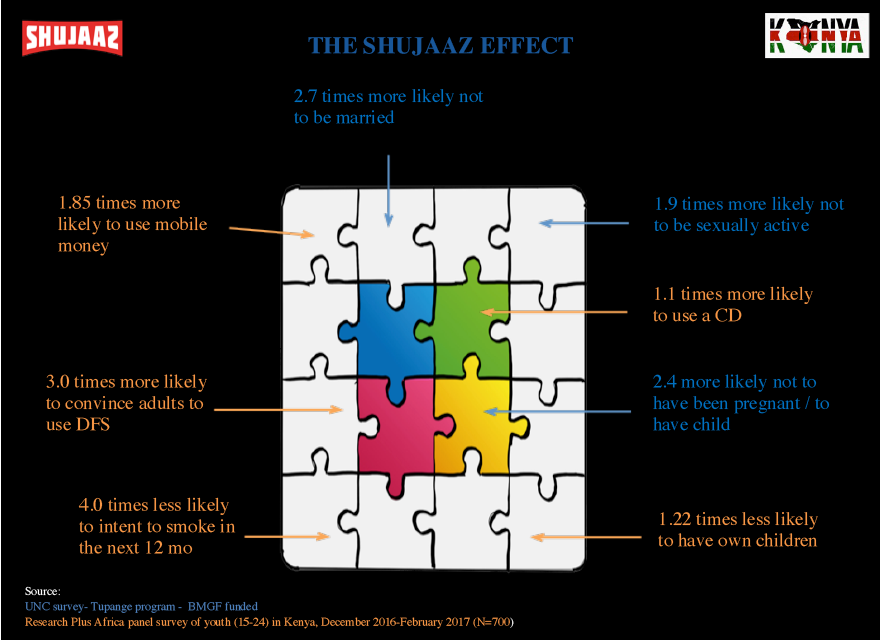
These interrelated outcomes build confidence and lead ultimately to empowerment, with widespread benefits.
Impact in Kenya
The importance of an empowerment strategy was emphasized by an insight we gained from a GroundTruth study for Shujaaz’s adolescent reproductive health strategy in 2015. The Knowledge and Learning team interviewed the manager of a bar in Bomet, a provincial town about four hours west of Nairobi. He explained that there were 21 young women variously employed as waitresses in the bar. He thought that all of them were having sex with the bar customers from time to time without contraception. When asked what he would do if it was his task to persuade them to use contraception, he answered, “I’d promote them.”
When a young woman has the beginning of a career that leads somewhere, she has something to protect. Her outlook changes and with it, her behaviour. It’s not that she’s ignorant of contraception or doesn’t have ways to obtain it; it’s that she needs a reason to use it.

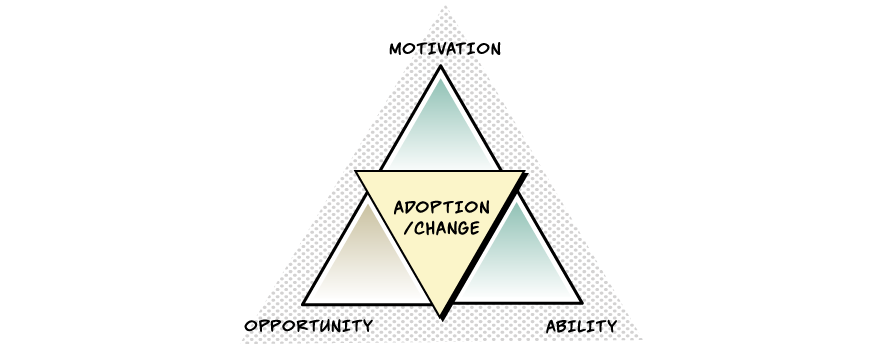
Shujaaz provides youth with not only the ability but also the motivation to improve their lives. We do so by providing specific and concrete models of better futures to which they can aspire, and by drawing paths towards these goals.
Impact in Tanzania
Shujaaz TZ is growing very fast and at this early stage we can already see shifts in conversation and some initial normative shifts:
- Our audience went from being not interested in Agriculture to exploring ways to make Agriculture work for them
- Our fans who demonstrate Brand Love seem to have better perceptions of Agriculture as a source of income and be more interested in exploring Agriculture

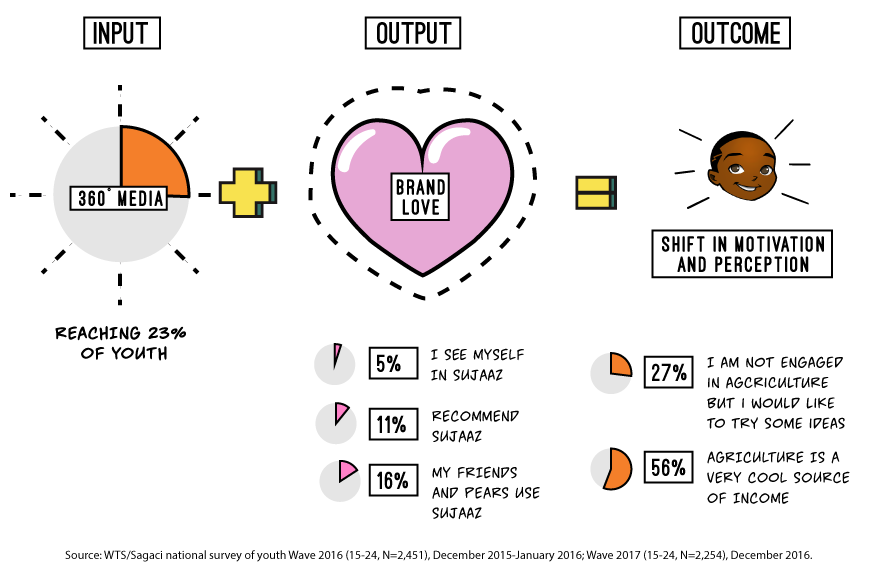
- Report: “#Shujaaz360, 2017.”
- Executive summary and academic review: “Evidence of normative change on attitudes related to reproductive health and the link between shifting norms and behaviour change: The Case of Shujaaz Media.” August 2017.
- Academic review: “Review of ‘Shujaaz Media and its Impact on the Attitudes and Behaviours of Youth (15-24 years old) in Kenya.’ By Paul Hutchinson, Tulane University. July 2017.
- Report: “#Shujaaz 360: #SexMoneyFun, May 2016, Kenya.”
- Academic paper: “Measurement, Learning & Evaluation of the Kenya Urban Reproductive Health Initiative (Tupange): Kenya Endline Household Survey 2014.”
- Theoretical essay: “Social Norms.” By Cristina Bicchieri for the Stanford Encyclopedia of Philosophy.

